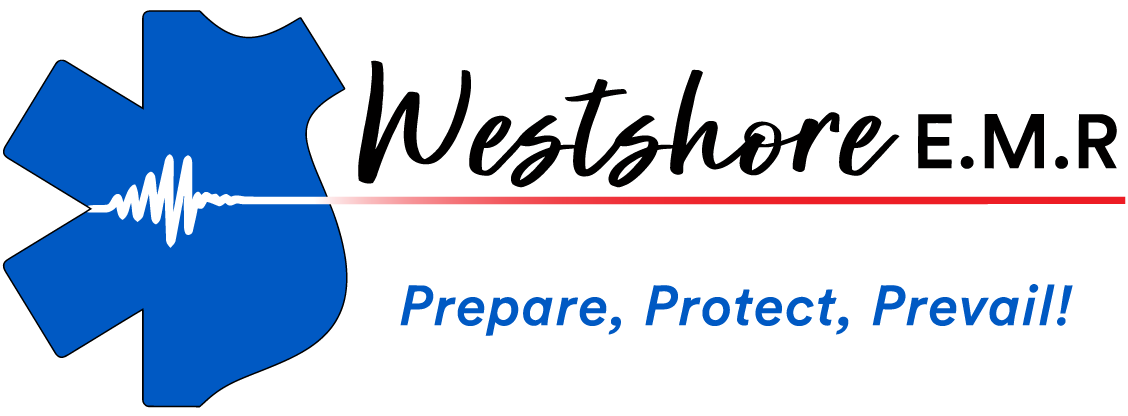At Westshore E.M.R, we offer specialized Crisis Intervention Team (CIT) National Model training designed to enhance collaboration between law enforcement, mental health professionals, consumers, and advocates. This comprehensive course is based on the Memphis Model, a proven approach to improving the response to individuals experiencing mental health crises. The CIT National Model focuses on a community effort to provide effective, compassionate, and informed responses, ensuring better outcomes for both individuals in crisis and the responders themselves.
The CIT National Model is a law enforcement-based training program aimed at equipping officers and community partners with the skills to de-escalate mental health crises. The course emphasizes collaboration among law enforcement, mental health professionals, consumers, and advocates, fostering a community-based approach to crisis intervention. This model ensures that officers can respond to individuals with mental health issues with care, respect, and the appropriate resources, avoiding unnecessary incarceration or use of force.
16 to 18 Topics Covered by Experts: The course consists of 16 to 18 individual topics, each taught by experts in their respective fields. These topics include mental health disorders, crisis de-escalation techniques, legal and ethical issues, and intervention strategies.
Mental Health Awareness: Participants will gain a deep understanding of common mental health conditions, including anxiety, depression, schizophrenia, and bipolar disorder, along with the signs and symptoms that can help in recognizing a crisis situation.
De-Escalation Techniques: Learn techniques to effectively de-escalate high-stress situations. Officers are trained in communication skills and non-violent crisis intervention strategies that can prevent violence and ensure a peaceful resolution.
Collaboration with Mental Health Providers: The training promotes a collaborative approach, encouraging law enforcement officers to work alongside mental health professionals and other community resources. By working together, a more supportive and effective response can be provided.
Crisis Response Procedures: Officers and partners are taught how to assess and manage a mental health crisis, utilizing a structured process that includes identifying risk factors, coordinating with mental health professionals, and offering appropriate resources to individuals in need.
Legal and Ethical Considerations: The course covers the legal aspects of crisis intervention, including the rights of individuals experiencing mental health crises and the responsibilities of law enforcement officers. It also addresses ethical concerns in the handling of sensitive mental health situations.
Consumer and Advocate Perspectives: Understanding the perspectives of mental health consumers and advocates is vital in providing a well-rounded response. This course includes input from individuals with lived experience and mental health advocates to help improve understanding and empathy.
Law Enforcement Officers: This course is specifically designed for law enforcement officers who are likely to encounter individuals experiencing mental health crises in the course of their duties. It equips officers with the tools needed to handle such situations safely and effectively.
Mental Health Professionals: Mental health providers who work with individuals in crisis can benefit from understanding the law enforcement perspective and building stronger collaboration with police officers.
Advocates and Consumers: This training is also valuable for individuals who advocate for people with mental health conditions or who have lived experience with mental health challenges. Their insight helps inform the training process, making it more inclusive and holistic.
Community Partners: Other community organizations and service providers who interact with individuals in mental health crises will gain insight into how they can better collaborate with law enforcement to provide effective crisis intervention.
Expert-Led Training: Our instructors are seasoned professionals with expertise in law enforcement, mental health, and crisis intervention. They bring real-world experience and knowledge to the training, ensuring you receive relevant and effective instruction.
Community-Based Approach: The CIT National Model emphasizes the importance of teamwork and collaboration, and our training reflects this by involving a wide range of community stakeholders, including law enforcement, mental health providers, and advocates.
Real-World Scenarios: The course incorporates real-world scenarios and simulations, helping participants practice their skills in a controlled environment. This ensures that when faced with a crisis, officers and community partners are well-prepared to respond effectively.
Comprehensive Support: We provide ongoing support and resources to participants, helping them implement what they’ve learned in their own work environments and communities.
Improved Crisis Response: Equip officers and community partners with the knowledge and skills needed to respond to mental health crises in a calm, compassionate, and effective manner.
Enhanced Community Collaboration: Foster stronger relationships between law enforcement, mental health providers, consumers, and advocates, ensuring a coordinated response to mental health emergencies.
Reduced Use of Force: By focusing on de-escalation and understanding mental health, the course helps reduce the need for forceful interventions, improving outcomes for individuals in crisis and reducing the potential for harm.
Better Outcomes for Individuals in Crisis: Individuals experiencing mental health crises are more likely to receive the appropriate care and treatment when law enforcement officers are trained in crisis intervention techniques.
Certification and Recognition: Upon successful completion of the course, participants will receive CIT certification, a valuable credential that recognizes their expertise in crisis intervention and mental health awareness.
The Crisis Intervention Team (CIT) National Model training at Westshore E.M.R provides law enforcement officers and community partners with the essential skills and knowledge needed to handle mental health crises effectively. Based on the proven Memphis Model, this course promotes collaboration among law enforcement, mental health providers, and advocates to ensure a compassionate and efficient response. By taking part in this course, you will gain the tools to reduce the impact of mental health crises, improve outcomes for individuals in need, and build a more supportive, cohesive community response. Join us today and be part of the solution to improving crisis intervention and mental health care in your community.

16A Bel Air South Park way #327 Bel Air, MD 21015
(410) 870-5451